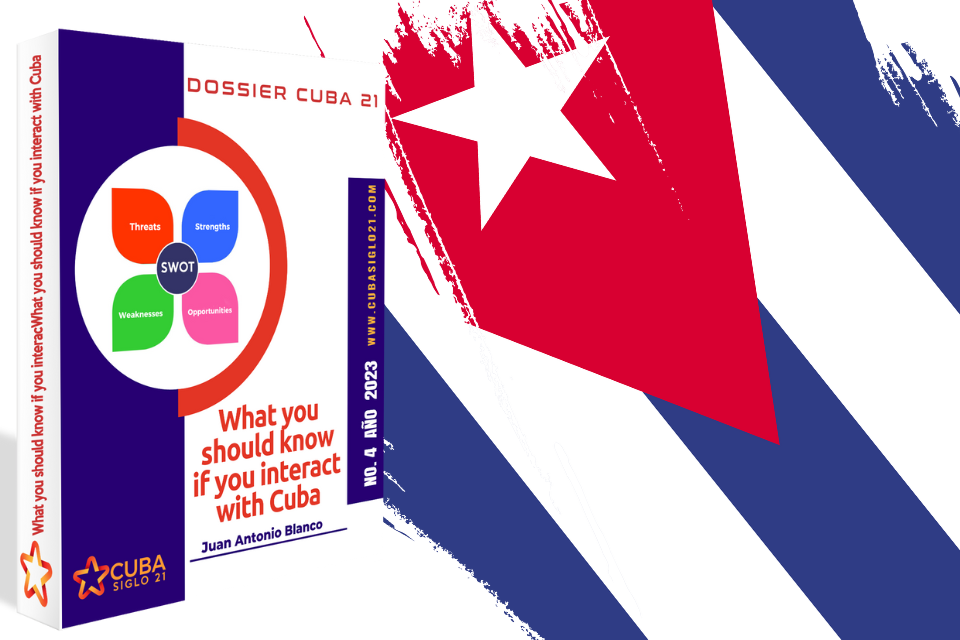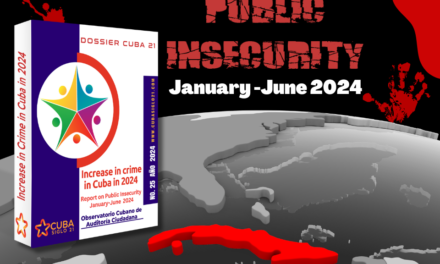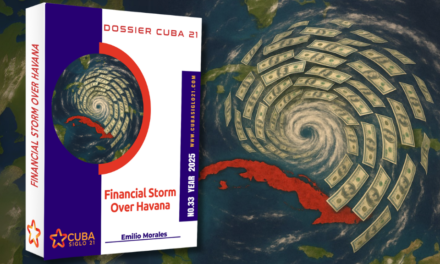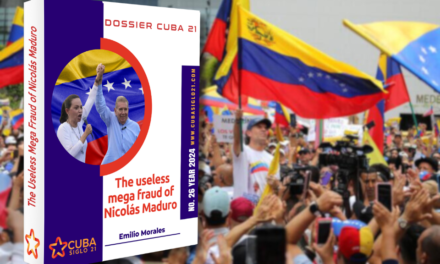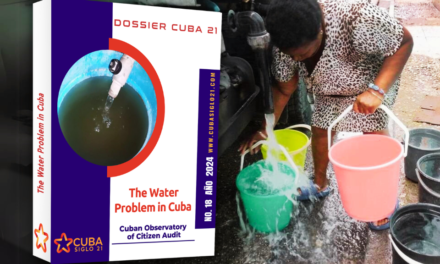It is well known that several foreign companies, players and governments are interested in “negotiating” with Havana this year on a diverse list of issues ranging from the possible control of migratory flows (USA) to the payment of debts contracted decades ago (London Club), including those that aspire to somehow improve the human rights situation on the island (European Union).
Despite the diversity of interests and players that promote them, all of them could well resort to a self-examination to estimate their chances of success. To do so, they could do an imaginary exercise of the SWOT (Strengths, Weaknesses, Opportunities and Threats) method often used by many companies and organizations:
Strengths
Aspiring successful interlocutors with Havana should ask themselves what resources they possess that Cuban authorities need and urgently need to obtain (money, credits, credibility, prestige, products, services, security, weapons, technologies, etc.) Only if the foreign or external party (European and US governments or the Cuban diaspora) is in possession of some asset that Havana values and urgently needs will their officials show interest in entering into an exchange and making progress on it. It should be clear that it is what is urgently needed by the power elite, not the people or national development. Those things should coincide, but they are usually different.
Opportunities
Never in the last 64 years has the overall situation -and therefore the negotiating position- of the Cuban power elite been weaker than it is today. The governance regime of Cuban society is suffering from a multi-systemic structural crisis that led to its collapse at the end of last year. The social and political unrest that has increased over the last decade began to be visible with protests of great and lesser intensity throughout the island.
It is easy to understand. The population lacks stable and quality energy and food security, internet services, transportation, health and drinking water. It suffers from galloping inflation that generates increasing misery. For its part, the power elite has transformed the totalitarian communist dictatorship into a mafia-like regime, with its back turned to the needs of the population, focused on multiplying the profits of invisible shareholders of companies once state-owned and now registered as private in Panama with off shore accounts in tax havens. GAESA, the holding company of the new oligarchy, controls 75% of the national wealth and 95% of the financial transactions.
The oligarchy pinned its hopes of recovering stability on the massive and brutal exercise of repression and the encouragement of a mass exodus (more than 300,000 citizens out of a population of eleven million left the island last year) that would immediately relieve them of the most urgent political and social pressures. But they are beginning to realize that their system of governance has collapsed, and they must “update” it to ensure internal stability and ward off the fear of a rebellion to overthrow their elitist power. To this end, they have reached an agreement with conservative ideologues in Russia to transform the Cuban totalitarian mafia state into a market mafia state like the one led by Putin in the Kremlin.
It is not that they are worried about the deterioration of the country’s standard of living, but the breakdown of the political stability they used to achieve before, when in similar situations (such as the crisis of the 90s) they had total control over the monopoly of information and ideology. Then it was possible for them to control citizens’ perceptions and behaviors, but that is no longer the case. Today they face levels of socio-political instability hitherto unknown in Cuba. They feel insecure in this new context. The hitherto unusual weakness in the governance of the Cuban power elite is what makes them more prone to consider alternatives that they would never have considered before. Today this situation represents a strength for those external actors that the Cuban power elite perceives as likely to offer them something of great interest.
Weaknesses
Despite Havana’s extreme weakness, its interlocutors may eventually present a set of weaknesses of which they are often not even aware. We will limit ourselves to commenting on four of them.
Ignorance of the true deep causes and roots of instability in Cuban society today.
If your country is literally invaded in a short time by hundreds of thousands of Cubans, first understand the basics. First: they are not emigrants who calmly planned that decision; they are people desperately fleeing their hellish daily life. Second: That desperate and hopeless reality is not the result of a sudden natural disaster, but of the deliberate policies of those who govern the island. Third: Those who cause that disaster with their policies are the same people who have organized the chaos that now falls on you on a massive scale due to your geographical proximity.
These are the same people who have made a lot of money along with their Sandinista cronies (who issued the visas) and the Mexican cartels (who provided coyotes). The cost of the itinerary from Cuba to Managua and from there to the US southern border ranged per person between $10,000-$15,000 USD and in 2022 some 300,000 desperate Cubans of all ages traveled it. You do the math.
It makes sense when a country like the U.S. claims that only by eradicating the causes of migratory exoduses can they be stopped. One might ask what the cause of the intermittent and ever-increasing waves of Cuban exodus is.
The Cuban oligarchs benefit from these exoduses in several ways: by the money they squeeze out of each emigrant; by the social pressure they take off and put on the shoulders of U.S. social security; by removing from the island dissidents who could be future political agitators; by the possibility of planting in the U.S. some undercover agent; and -most importantly- by generating new sources of remittances and payment of services to family members living in Cuba, which go directly to the coffers of the GAESA oligarchs.
If the Obama Administration’s policy of unconditional rapprochement with Cuba had any success, it was to demonstrate -with the Cubans paying the price of that experiment- that the root of the “instability” in Cuba is not due to external causes but endogenous: it is the regime of governance imposed by the oligarchy that “blocks” the prosperity of Cubans in order to safeguard the privileges of their exercise of absolute power over the citizenry.
Ignorance of the current nature and interests of the Cuban counterpart in the negotiations.
Officials representing the interests of the Havana oligarchy in international negotiations are armed with sentimental arguments that the cause of all the ills afflicting their country come from evil external actors: imperialist governments, vulture funds, conspiracies with foreign intelligence services and so on ad infinitum. They will never acknowledge their full or partial responsibility for any problem or harm.
It is not surprising. It is in their nature. Again: these officials do not respond to the interests and welfare of Cuban citizens, nor to the country’s aspirations for peace and national development. They respond to those who gave them their jobs and pay their salaries, who in turn are only interested in preserving their power and privileges inside Cuba.
When Henry Kissinger took the initiative to initiate talks with Havana to explore the possibility of including Cuba in his architecture of global détente, he instructed his subordinates to treat Cuban officials as “gentlemen”. With that illusion, he made some ad hoc concessions to his interlocutors, such as lifting bans on third-country subsidiaries of U.S. companies to trade with Cuba. One day he awoke to the news that a force of tens of thousands of regular soldiers and special troops had arrived from Cuba in Angola with Russian multiple rocket launchers (Katiushkas) and MIGs. The talks ended.
You could not have negotiated with Al Capone as if you were in the presence of a respectable statesman or businessman. As an expert on Russian Mafia State issues once said: to negotiate with Putin it is preferable to send an FBI or SWAT advisor rather than a famous expert from Harvard or the State Department. What is rational for such counterparts is not what their democratic interlocutors assume to be rational.
Not knowing the difference between conversation, dialogue and negotiation.
Conversation, dialogue, and negotiation are different exercises that may eventually constitute successive stages if the process is successful.
SWAT negotiators “talk” ad hoc issues with bank robbers holding hostages while, often, laser beams from assault rifles are projected onto the criminals through building windows. U.S. and Vietnamese troops “talked” to agree to temporary ceasefires for various reasons. Reagan Administration representatives “talked” several times with the Sandinistas in the Mexican city of Manzanillo. When the Nicaraguans pretended to be “negotiating,” the Americans reminded them that they were only talking and that a “negotiation” to achieve peace could only take place and be achieved between them and the Nicaraguan opposition when both sides agreed to do so.
A dialogue is a more complex and comprehensive exercise than a conversation on one or two issues. Dialogues are usually lengthy and represent a reciprocal exploration that is not bound to reach an agreement, although it may do so, and its main objective is to identify whether there is indeed a potential basis for moving on to a “negotiation” from which a formal, definitive agreement will emerge that responds to the fundamental aspirations of each party.
When one of the parties believes it is just talking and the other thinks it is negotiating a complex and final agreement, uncertainty and dangerous misunderstandings are generated. When the Spanish State decided to “talk” with ETA, it thought it was already “negotiating”. After a while, the terrorists thought that the process was being artificially prolonged without reaching agreements, and in order to be “taken seriously” they placed an explosive device in Terminal 4 of Barajas Airport, in Madrid, which cost the lives of several innocent immigrants.
Given the inevitable confidentiality of these processes, so as not to set off alarms among the victims or generate false expectations among the perpetrators, it is essential to be transparent in announcing the nature and scope of any type of exchange (conversation, dialogue or negotiation) initiated by a foreign government or entity with the Havana regime.
Disregard the threats to international security posed by the current Cuban mafia state.
In January 1957, Admiral Washington Platt published Production of Strategic Intelligence, a true classic with lessons that are still valid for those who dedicate themselves to this task in a government or even in private enterprise. In his manual, Platt gave as an example of strategic assessment a hypothetical conflict between Cuba and the United States where the latter would have nothing to fear because it would be suicidal for the island to try to land in the United States even if it were 90 miles from its coasts.
It was a bad example of an excellent book. On October 4 of that same year the USSR launched the first spacecraft (Sputnik), ushering in the era of ballistic rocketry. In that new context, assessments of the danger that a small island with neither nuclear weapons nor military capability could pose to initiate a conventional war against a neighboring superpower became obsolete. The missile crisis of October 1962 demonstrated that in the age of nuclear rocketry there is no longer a small enemy if it is part of alliances that level the scales in its favor. Platt’s assertion, true when he published his book, had been overtaken by history.
Many decades later, President Obama’s advisors allowed themselves to be influenced by Havana’s lobbyists, who sold the thesis planted in the Pentagon by the spy Ana Belen Montes. It is summarized in the same idea, adapted to the post-Cold War world, of Admiral Platt: “Cuba cannot represent a danger to the US after the fall of the USSR deprived it of resources to export subversion”.
The statement was dangerously wrong, but its corollary was poisonous. It could be summarized as follows: “The strategic objective of our policy towards Cuba in these new circumstances should be to ensure its stability. What corresponds is to strengthen, not weaken, the power of the Cuban government to avoid exodus or falling into the hands of criminal elements”.
In the 21st century, new geopolitics of confrontation with Western countries has emerged, involving a flexible and diverse alliance of state and irregular actors (and autocratic, kleptocratic, mafia regimes) that share an allergy to democracy, open societies, the rule of law and the DEA.
Cuba, in close alliance with Russia and Iran, leads those in the Western Hemisphere: Venezuela, Nicaragua and Bolivia. Russia’s hybrid war of aggression on Ukraine in 2014 was followed in October 2019 by an equally hybrid offensive to destabilize democratically elected governments in Bolivia, Ecuador, Chile and Colombia. Diosdado Cabello, drug trafficker and leader of Venezuela’s ruling party, called them “Bolivarian breezes”.
Threats
Finally, to complete this imagined SWOT review, we must point out what threats we would face if we overlook our own strengths, opportunities and weaknesses, which we referred to earlier.
The first threat is asking the wrong questions that will always lead to the wrong answers. Asking the wrong question and giving the wrong answer when it comes to national security is a sure formula for disaster.
The question should not be how to stabilize the Cuban government so that it can prevent exoduses to the U.S. and prevent the establishment of mafias in its territory. The question is false because it reflects a lack of understanding that the main cause of the instability that provokes the exoduses from Cuba is precisely the current mafia governance regime, which on the one hand generates unbearable living conditions, and on the other hand is already allied with other states and criminal actors for whom it launders money and offers logistical, political, diplomatic and intelligence support, as the case may be.
To sum up
The formula for “stabilizing” Cuba involves a radical change in the island’s governance regime. Cubans have the task of achieving this change by themselves, preferably in a non-violent manner, without demanding that others solve the problem for them. But it would be reasonable to ask external actors not to make their task more difficult by falling back on erroneous premises and proven failed policies, which in the past have served to strengthen their oppressors.
Download Dossier Cuba 21 No. 4 What you should know if you interact with Cuba

